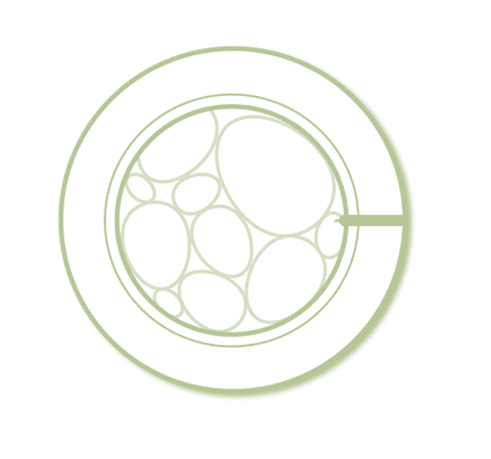
In the first days of its development, the egg (oocyte) and later the embryo has a protective envelope on its surface, known as zona pellucida. On day 5 to 6 after fertilization, the embryo begins to leave this envelope, and the cells of the embryo come into direct contact with the cells of the uterine mucosa, thereby starting the process of embryo nidation (nesting).
A markedly thick zona pellucida can have an unfavourable effect on the correct growth of the embryo thus forming an undesirable barrier between the embryo and the endometrium at the time of its expected implantation. Assisted hatching is recommended to older patients and in other indicated cases, when the zona pellucida is stronger and could thus negatively affect the culture process.
Disruption of the zona pellucida with a laser prior to embryo cryopreservation enables more efficient penetration of cryoprotective solutions through the embryo, and thus provides adequate protection of cells against frost damage that may occur during cryopreservation. After thawing the embryo, it facilitates its recovery, thus increasing the success rate of pregnancy after CET (cryo-embryo transfer). If patients are interested in cryopreservation of embryos, we perform assisted hatching automatically on all embryos suitable for freezing.
For the purposes of preimplantation genetic testing (PGT), embryonic cell biopsy is performed on five- to six-day-old embryos at the hatching blastocyst stage. In order to obtain the largest possible number of embryos suitable for biopsy, assisted hatching is performed on the 3rd day of culture on all embryos.
